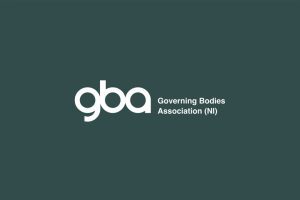Platform Piece by John Hart – GBA Director
Originally published in Belfast Telegraph – August 2012
Last week the Belfast Telegraph exposed the proposed appointment of governors to the board of a voluntary grammar school. Huge questions were raised over the background of some of those nominated by the Education Minister, but the Governing Bodies Association (GBA) believes this is only one symptom of what is an underlying problem.
Despite common misconceptions voluntary grammars schools, which together with controlled grammars educate more than half of our post-primary pupils, are not defined by faith but rather by the strong independence they enjoy from government and administration. In some instances our schools have delivered the best comparable education anywhere on these islands for centuries, as evidenced by the over-subscription at transfer from primary schools. Indeed, as government in Britain recognises the failure of the comprehensive education system, it is applying a Northern Irish solution with the faith-based ethos of free-schools and the achievement focus of academies. Combining these elements, one ends up with something that closely resembles a Voluntary Grammar school.
At the core of this independence are the thousands of voluntary hours provided by governors who, unseen and unheralded, are responsible for the high standards of education our young people enjoy. Without them, schools would not function. Governors bring skills and expertise to boards that collectively provide leadership and direction, and hold principals and teachers to account. That is why having the right people at the heart of schools is so important.
For years the Department of Education and schools worked in partnership to ensure boards enjoyed not only the expertise of a balanced set of skills, but people who displayed a clear passion for the particular school in which they served. This approach was consistent with the Department’s statutory obligations under the 1986 order and the average appointment process from application to approval was around seven weeks. When the previous Minister occupied office, this system, which had operated successfully for 25 years, shuddered to a halt and she refused to make any appointments for two years – for reasons which we can only speculate about. When the current Minister took office we were optimistic that things would improve.
Under the current legislation the Minister is required to consult with schools about the person whom he is considering for appointment. However, although the new Minister recommenced appointments, he did so without properly consulting schools as is required under the 1986 Order.
Indeed, the GBA considered taking legal action at the time but, in a bid to avoid further acrimony in education, we met the Minister to outline our concerns. We suggested working with his officials to improve the consultation process, before further appointments would be made. During those discussions the only proposals were made by the GBA and, in recommencing appointments in the absence of agreement and without prior notice, we seriously question the Department’s commitment to this issue.
In doing so, we have the extraordinary situation of one of Northern Ireland’s top performing schools being offered a person to serve on its Board of Governors who is on public record as wholly opposed to this type of school. The Minister might take the view that he holds the power of patronage and he will exercise it as he sees fit.
However, what if the school was not a grammar school? What if it was an integrated or an Irish language school? Would the Minister seriously consider someone to serve who was on public record as saying these schools were ‘outrageous’ or ‘feeding a culture of fear’? Hypothetically, would the Minister propose Gregory Campbell to serve on an Irish language Bunscoil, or in the spirit of diversity would he appoint him to Lumen Christi? Such a contradictory approach not only concerns the school, it would also affect the appointee. Once appointed, similar to any director on a board, they are bound by a fiduciary duty to first and foremost act in the best interests of that school. So you could be caught between your best judgement as a governor and an opinion expressed on public record.
The Department, in what little defence it has offered on this issue, makes vague references to diversity, a classic diversion of political motherhood and apple pie. However, diversity is not governed by political whim, it is grounded in the standard heads of equality as laid out in section 75 of the Northern Ireland Act 1998. And even these recognised heads, such as gender, age and religious belief, are superseded by the merit principle. The Department has yet to demonstrate how it judges the diversity of its appointments against those already sitting on the board. It does not collect or hold equality-type data on the other governors, so how then can it claim to broaden the diversity of boards with its candidates? In essence, the Department’s approach to diversity is arbitrary and should be a matter of concern for the Equality Commission.
Schools are significant organisations, with significant estate and budgets, and the responsibilities upon them are onerous. Therefore, they need the best people available, not those expected to implement a political agenda via a back door.
More than half of voluntary grammar schools are Catholic, and a spokesman on behalf of Catholic Bishops recently said that they will seek to select governors who will toe their political line. These schools could be forgiven for feeling they are at the centre of a classic political pincer move. Knowing what we know now, it would be interesting to know if the Bishops still regard the politicisation of boards as acceptable.
Nobody disputes that there is a problem with under-performing schools in some sectors in Northern Ireland. That presents an urgent challenge to politicians and educationalists alike. There seems to be, however, a determined effort to dismantle voluntary schools as part of some grander strategy to bring fundamental change to Northern Ireland education. The imposition of governors who oppose the ethos and approach is but one part of the plan.
The new powers in the proposed ESA Bill, the Entitlement Framework and Area Based Planning, are the tools currently being utilised by the Department to achieve its end. The fact that the Minister represents a party committed to centralising power also presents a unique opportunity for the Department to alter the foundations of education in Northern Ireland.
This ‘Year Zero’ approach to policy making poses a major challenge for both parents and politicians. Parents must find their voice and tell politicians that they won’t accept the highest performing schools being battered externally by government policy and weakened internally by governor appointment.
The challenge for our politicians is to listen to them.





